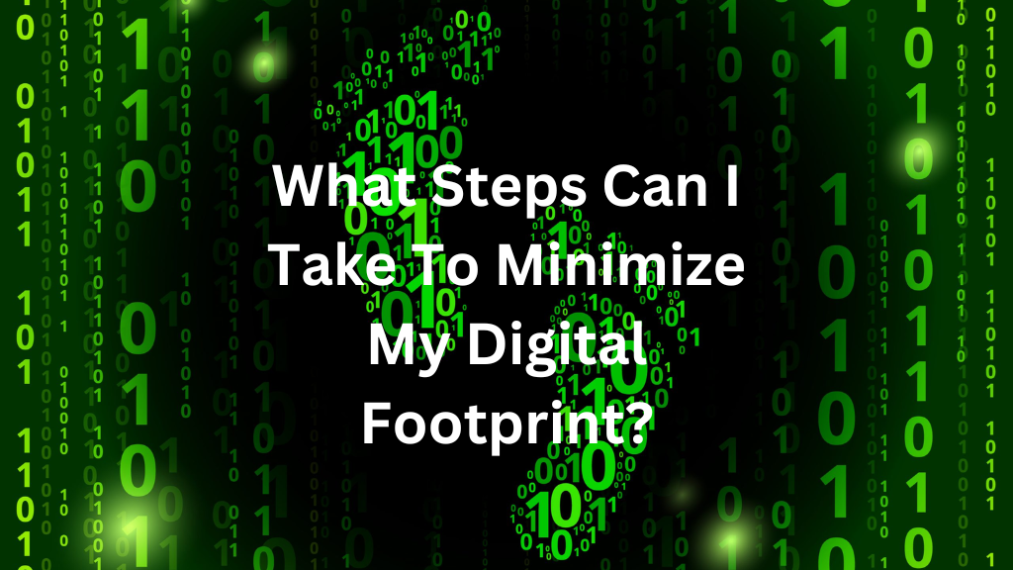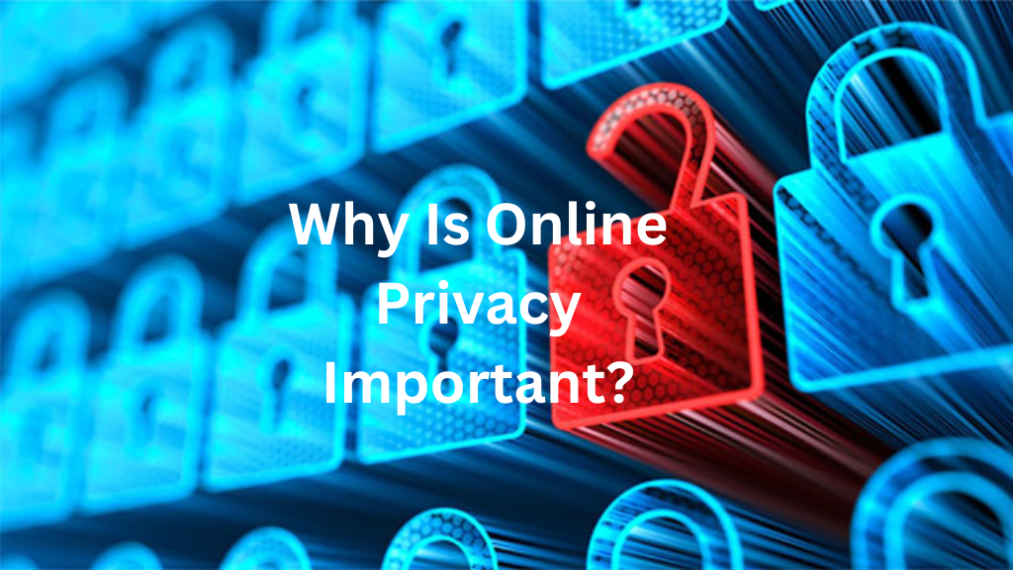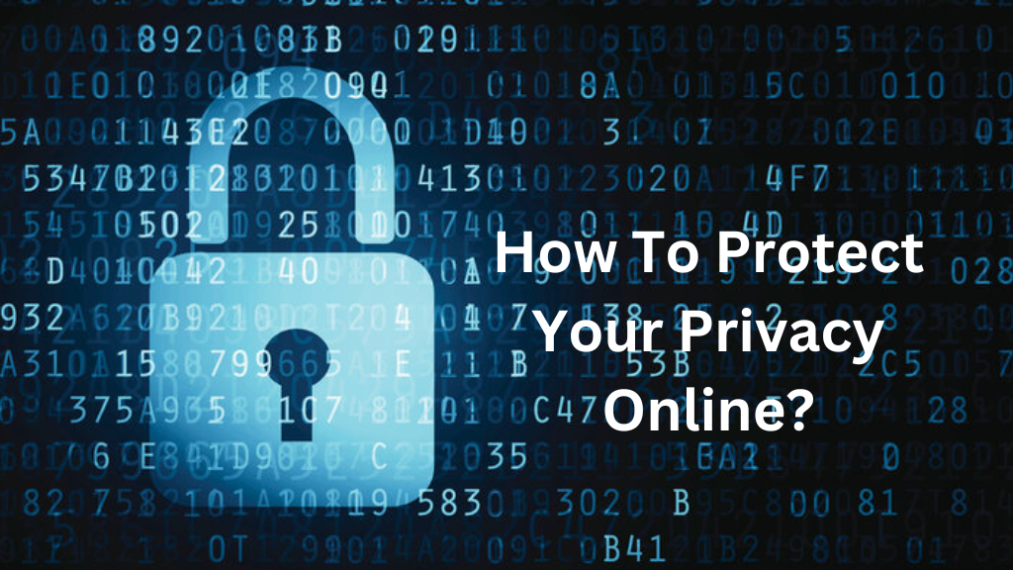In an era where most of our interactions and transactions occur online, it’s critical to be well-versed in protecting our privacy. Your privacy should be a top priority as you navigate the digital landscape. This article is designed to guide you through the crucial steps to safeguard your online privacy.
Perhaps you’ve questioned why online privacy is crucial. Consider this:
“Your digital footprint, once online, can be nearly impossible to erase. Every bit of personal information you share online, from your location and personal photos to your thoughts and opinions, contributes to your digital footprint. Over time, this can be collected, analyzed, and used in ways you might not anticipate.”
Now that you understand why it is essential, let’s dive into how to protect your online privacy.
- Know the terms of service for the websites you visit.
- Think before you click and share.
- Use strong and unique passwords.
- Keep your software, including antivirus protection, updated.
Following these steps can drastically reduce your risk and maintain your online privacy. This article will detail these points, providing the knowledge and tools to protect yourself online.
What Steps Can I Take To Minimize My Digital Footprint?

As you navigate through the digital world, your actions, whether big or small, leave a trail known as a digital footprint. This footprint can offer vast information about you, potentially threatening your privacy. Fortunately, there are proactive steps you can take to minimize your digital footprint and better safeguard your online privacy. Let’s explore those now.
Secure Your Web Browsing
The websites you visit and the data you input while browsing can become part of your digital footprint. To mitigate this, consider the following strategies:
- Use Private Browsing: Most web browsers offer a ‘private’ or ‘incognito’ mode, which does not store your browsing history or web form information.
- Consider a VPN: Virtual Private Networks (VPNs) encrypt your internet connection, making it harder for others to track your online actions.
- Limit Tracking Cookies: Regularly clear cookies from your browser or use a privacy-focused browser that blocks third-party cookies by default.
Review Your Social Media Settings
Social media platforms can create a significant digital footprint. To limit this:
- Limit Sharing: Restrict who can see your posts, and avoid sharing sensitive personal information.
- Turn Off Location Services: Most social media platforms tag your location when you post. This can be turned off in the settings.
- Know Your Privacy Settings: Regularly review and update your privacy settings to ensure maximum protection.
Be Mindful of Your Email Habits
Email is a standard means of communication, but it can also contribute to your digital footprint. When using email, try to:
- Limit Public Usage: Avoid using your primary email address for public forums or comment sections.
- Unsubscribe: Regularly clean up your email subscriptions to reduce unnecessary digital clutter.
Consider Using Privacy Tools
There are a plethora of tools and services available to help protect your online privacy:
- Use a Secure Search Engine: Search engines like DuckDuckGo do not track your search history.
- Install a Privacy Tool: Privacy Badger can help block online trackers.
Protecting your online privacy by minimizing your digital footprint may seem daunting, but by taking these steps, you can regain control. Remember, the goal isn’t to completely disappear from the digital world but to leave a footprint you’re comfortable with.
Why Is Online Privacy Important?

‘s digital age, the importance of online privacy cannot be overstated. It is the foundation of your freedom and expression on the internet. It determines how much of your personal information is accessible and to whom. It’s about retaining control over your digital self in an increasingly connected world.
Protection From Unauthorized Access
The first and foremost reason online privacy matters is the risk of unauthorized access to your personal and financial information. Cybercriminals are always looking for loopholes to gain access to your data, which they can use for malicious activities. A solid online privacy framework ensures you are safeguarding yourself against such threats.
Preservation of Personal Freedom
Online privacy is crucial in maintaining your freedom. You feel more comfortable expressing your opinions and engaging in digital discourse when assured of your privacy. Without it, you may feel stifled, fearing potential backlash or misinterpretation.
Preventing Identity Theft
Identity theft is an escalating problem in our digital world. It involves someone stealing your personal information and pretending to be you for their benefit. Maintaining online solid privacy practices can significantly reduce the risk of becoming a victim of identity theft.
Avoiding Unwanted Surveillance
Without adequate online privacy, your online activities could be tracked and monitored by various entities, from marketing companies to cybercriminals and even the government in some cases. This can lead to unwanted targeted advertising or, worse, cyberstalking.
In closing, online privacy is vital for safeguarding your personal information, ensuring personal freedom, preventing identity theft, and avoiding unwanted surveillance. Taking proactive measures to protect your online privacy and stay safe in the digital world is essential.
What Are Some Practical Ways To Protect My Privacy Online?
Online privacy is a concern that everyone should take seriously. Your data, from financial information to intimate details of your life, can be exploited by unscrupulous individuals or corporations if not adequately protected. Here are some practical, effective ways you can safeguard your privacy while navigating the digital landscape:
Use A Virtual Private Network (VPN)
A Virtual Private Network, or VPN, encrypts your internet connection and masks your IP address, making it more difficult for anyone to track your online activities. Using a VPN can provide an extra layer of security, especially when accessing the internet from public Wi-Fi networks.
Install a Tracker Blocker
Many websites install cookies on your device that track your online activities for advertising purposes. Tracker blockers, such as browser extensions, can prevent these cookies from being installed, helping to keep your browsing habits private.
Only Share Necessary Information
Be cautious about the personal information you share online. Never provide more information than necessary, and be wary of requests for personal data. Remember, the less you share, the less there is to exploit.
Use Secure Messaging Apps
Not all messaging apps are created equal. Some offer end-to-end encryption, meaning only you and the person communicating can read what is sent. Apps like these provide a more secure line of communication.
Regularly Update Your Devices and Apps
Updates often not only include new features but also patch security flaws. Keeping your devices and apps updated ensures you’re protected from known threats.
Have Strong, Unique Passwords
A unique, strong password for each online account can prevent unauthorized access. Consider using a password manager to help you keep track of your passwords.
Remember, online privacy isn’t just about protecting information; it’s about preserving your freedom and preventing unwanted access to your digital life. Taking these steps can help you maintain control over your data and your online experience.
How Do Websites And Apps Track My Online Activities?
Understanding how websites and apps track your online activities is critical to protect your privacy effectively. Most online platforms have various methods to collect and analyze user data.
Cookies and Web Beacons
One of the main ways websites track your activities is through cookies. These are small files stored on your computer by websites you visit. They contain information about your browsing habits and preferences. Web beacons, also known as pixel tags, work with cookies to record your activities. They are invisible images embedded into websites or emails that send information about your behavior to the server.
IP Address and Browser Fingerprinting
Another method is through your IP address. Websites can see your IP address whenever you visit, giving them information about your location. Browser fingerprinting is another technique used to track users. It involves collecting information about your browser type, operating system, screen resolution, and other details to create a unique profile of your device.
Third-Party Trackers
Websites often incorporate third-party trackers, typically embedded in ads, videos, and other content. They collect data about your behavior across multiple websites, creating a comprehensive profile of your interests and habits.
Mobile App Trackers
Apps on your mobile devices also track your activities. They collect a wide range of data, including your location, device type, how you interact with the app, and more. Some apps may even access your contacts, call logs, or other sensitive information if you permit them.
Understanding how you’re being tracked online is the first step towards protecting your privacy. In the following sections, we will explore practical methods of countering these tracking techniques.
Conclusion
Protecting your online privacy is necessary and imperative in today’s digital age. Whether using a VPN, being mindful of your email habits, or securing your web browsing, these measures are vital for preventing unauthorized access, preserving personal freedom, and avoiding unwanted surveillance.
Understanding how websites and apps track your online activities, such as through cookies, IP addresses, and third-party trackers, helps you make informed decisions about your online behavior. It’s important to remember that your privacy is worth fighting for, and there are tools readily available to help you safeguard it.
Ultimately, the responsibility for your online privacy lies with you. Be cautious of the information you share online, keep your devices and apps updated, and regularly review your privacy settings. With these practices, you can significantly minimize your digital footprint and secure your digital life.





